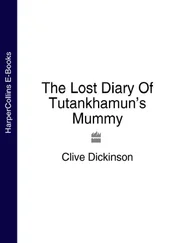[There are things that surround us, that abound in great numbers, that slither or crawl, and yet, today, they don’t matter. The monkeys are clamoring above our heads. I assert, I insist: I’m an irregular verb .]
Note of farewell by Elena Siesta / Laetitia Pilkinghorn
Shortly after the last throes of Agraphia , justified because of the password “after the first death, there is no other” [Dylan Thomas bromide], and after the latest babbling in search of a scheme or pattern [“Specular Soup,” “Early”], the group had been reduced to a small circle of snobs with exclusive tastes and reverential airs, committed to a grim [sterile] formalism, that varied between free experimentation and idiotic oulipienne extremes, but which had the virtue — or defect — of not incorporating the audacity or stringent formalism of the latter, only the enthusiasm, effeminacy, and acedia [anesthesis] of its practitioners.
Emilio Duluoz, Last Paid [Pure] Vacations
On Hilarión’s resurrection from the dead and the reburial
I live in communion with the dead [Quevedo]
One stormy night, Nicasio brought us to the house in the south where Hilarión’s wake was being held. We gathered round him. He said: “there won’t be many of us.” Since there was no more coffee, they brought us mugs of milk. The smell of dead flowers was repulsive. “After three days, the body starts to reek,” said Nicasio before adding: “these three are the cultural apostles of the distant far away .” He was referring to a certain young man, an older man with the look of a lawyer about him, and Felipe Luini’s girlfriend. [Dead?] The Fedora [of imitation felt] resting motionless on his chest, a recent Band-Aid on his ring finger, a copy of The Barefoot Path . Also, an umbrella dripping outside the narrow furrow of his march, a standing ashtray brimming with inhuman ash, and some empty mugs balancing on a coffee table. At certain times, in an adjoining room lit with tubes, the three were face-to-face with the ambassadors of the distant faraway, and the youth took the opportunity to air his relationship with a woman ten years his senior.
“I expect the worst: that she’ll commit suicide. And that she’ll make the decision while I’m away.” The confession prompted a contest. The lawyer revealed he was in a relationship with a woman who was making his life impossible. Luini’s girlfriend said her brother was running the risk of being assassinated by a group of vigilantes, and that no one knew how to convince him to flee the country. Back in front of HCs coffin, someone standing next to Lester said: “How strange it is.” At which Nicasio explained: “Like a crustacean. The integrity of the corpse and the lack of smell are due to the illness. As it advances, it stops growth and corruption. We’ll be attending a premature burial.” Luini’s girlfriend — the sister of the threatened man, whom we all wanted to save in that same hour — ventured to ask something we’d disregarded: “If it wasn’t going to last more than a day, why have a wake?” Nicasio delayed in answering: “Don’t know. A whim. It just had to be seen.” And someone else puffed: “Was it really worth it?”
The following day, the dead of night seemed to reward them, but it was a false alarm, although it made the priest’s youth sermon more tolerable, and for Luini’s girlfriend, it made more tolerable the incessant advances of the obsequious lawyer with the ridiculous name.
Before they sealed the coffin, one of the three apostles pointed at the ring finger of the deceased [enringed with a piece of tan paper], around which there was a piece of paper. He asked Nicasio if he could remove it. After a questioning glance at the lawyer, Nicasio approved. The lawyer seemed to be waiting for that moment the whole night. He nodded with a smile, adding: “Don’t hesitate, do it immediately, but slowly: I also happen to be a notary public.”
It was a piece of rag paper. On the side in contact with the skin, there was a printed inscription: The illness has assumed the likeness of death that death, the same death you question! [sic] on the way out, will not deny .
Nicasio was left with the rag paper piece, that is, one of the apostles.
[“Thoroughness” extends in two directions because of the two senses of the word: comprehensiveness and meticulousness.]
It’s difficult, and especially now, to find out in detail what he did for Inés, who was always wishing for someone to visit, but someone who didn’t immediately become, or become by degrees for that matter, tiresome on visiting. She used to say, to claim, it was a result of her middle class, her bourgeois vulgarity. But there was something else.
[#26]
It’s not easy writing a sad tale after a happy one. [Perhaps] Tolstoy had this in mind when he heard the first beating intimations of his Anna K. It may be hard to hear a beat in here. My family bedroom is host to every kind of noise.
Beginning of “Replicas”
Fantin-Latour. To block outline.
Blocked outline.
Anales diáfanos del viento . Góngora
Mourir
Although nothing prepares us for it, dying suddenly when young exempts us from having to go through the slow process of dying when old. Two ghosts have stood up [in unison]. They are the ghosts of old age and of sickness. [And] they stood up together and got ready to leave when we alerted them that we still hadn’t died, that we hadn’t died yet, that we are still standing, [that we will remain standing,] that we’ve begun walking. We caught up with them almost immediately. All our actions were mirrored in theirs, as if they were glued to our backs, beginning at the hip. Duelists, if we were, in truth, chronological caricatures. After they cross our path, we will not see them again, but we will hear them say, illegibly or inscrutably, through the semi-consciousness of awakening from sleep, that since they began expecting us (waiting for us, frightening us), the slow process of dying is no respecter of age. Dying and aging are very different things, as if one was written in verse, the other, in prose. Even now, when I think I’m beginning to understand them, I do not. And perhaps it’s because “now” demands too much exercise of will, and “do,” even more. And everything I had set out to describe here, before Basilio stopped me, is inaccurate, an implausible version of what really goes on. And what really goes on: birds decapitated over headless torsos. And this makes me think of D. H. Lawrence, and the precise way in which he ends The Woman Who Rode Away by dismissing what is loved and what is seen. But Lawrence himself isn’t an example of what I mean. In him, the illness, the sickness, isn’t a ghost, and old age is only an intruder insulted by his good looks. Not a ghost, but a beggar that follows him, circling round him, a dervish, spinning round him, transforming him with every turn, as Morgan Le Fey does to Prince Valiant in the first book I ever truly loved. That lets him see, through graying orbits, time spent, what the years ahead will bring. He will have the good sense not to fulfill them, but not so as to die suddenly when young, but to go through the slow process of dying … Yes,
free
with weariness of flesh when the dice that we spend our lives burnishing fall outside the precisesly measured circle of error that predicts the probability of a sudden accidental death and are blunted …
In Precisions
Chronology & Critique
Emma Steele (???) Cristóbal Niaras
The zero, a round number— achievements and memorabilia of Agraphia
A great puzzle whose answers are all out of place
It’s easy to determine the system of belonging at Agraphia from a stylistic criterion, and despite what’s said above or below [Niaras and Armesto were mere footnotes] about collaborative writing. “Specular Soup” and “Replicas,” for example, are covered in the stylistic fingerprints of the folie á deux collaborations of Nicasio Urlihrt / Eloísa Betelgeuse and Oliverio Lester / Elena Siesta. In the first, the tendency to supply an aphoristic generalization followed by a narrative conclusion (“We know it takes time: Tashtego awaited the revelation two centuries after his departure from the Puerto de Palos of his invention, languishing on a Patagonian coastline”) competes, paragraph after paragraph, prayer by prayer, with the transmission of useless technical terms to the reader (example, transcription) …
Читать дальше












